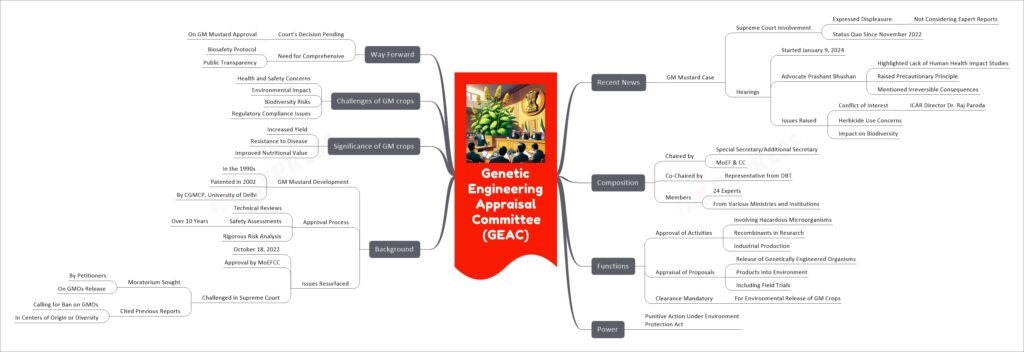Genetic Engineering Appraisal Committee (GEAC)

The Genetic Engineering Appraisal Committee (GEAC) in India, functioning under the Ministry of Environment, Forest, and Climate Change, is currently in the spotlight due to its involvement in the approval process of genetically modified (GM) mustard. The Supreme Court of India has expressed displeasure over GEAC’s decision to approve GM mustard without considering the reports of a court-appointed Technical Expert Committee on biosafety. Advocates have raised concerns about the lack of studies on the impact of GM crops on human health, potential environmental risks, and issues of regulatory compliance. The approval process has been extensive, with over a decade of technical reviews and safety assessments. However, the Supreme Court’s decision on the matter is pending, emphasizing the need for a comprehensive biosafety protocol and greater public transparency in the approval process of GM crops.
If you like this post, please share your feedback in the comments section below so that we will upload more posts like this.

